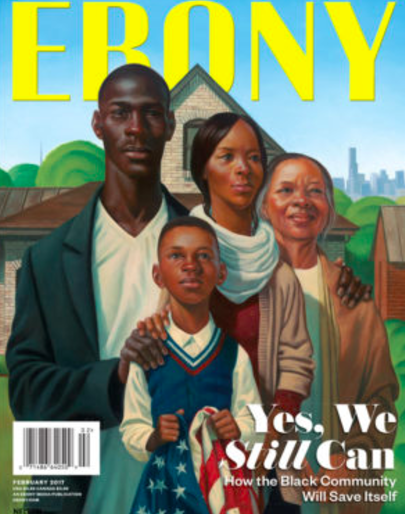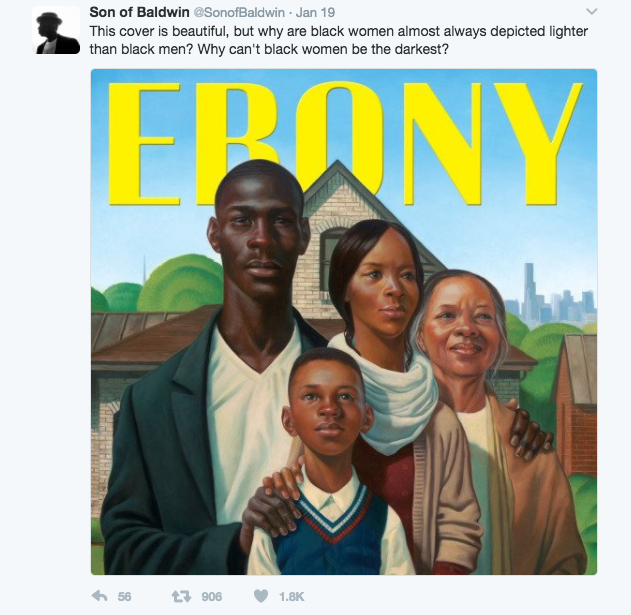This Magazine Cover Started a Debate About a Type of Racism Some Don't Know Exists

By:
The Ebony cover for February, featuring a picture of a black family, has spurred a conversation about race the magazine didn't intend to start.
"After eight years of President Barack Obama, the anesthesia of liberalism has worn off, and many Black Americans are experiencing sharp pains in anticipation of what lies ahead," wrote Ebony's Kirsten West Savali.
 Ebony - ebony.com
Ebony - ebony.com
However, Robert Jones, Jr., the writer and creator of "Son of Baldwin," an online community for social justice, tweeted about another racial issue on the magazine cover itself.
 Twitter/@SonofBaldwin - twitter.com
Twitter/@SonofBaldwin - twitter.com
Jones tweeted that black women on magazine covers are "almost always depicted lighter than black men," a reference to colorism, or prejudice against black people with darker skin tones, especially within the black community. ATTN: previously reported on the controversial face of pop black feminism being light skinned black women like Beyoncé. American beauty standards often focus on lighter skin black women, effectively cast as "prettier" than darker women.
The tweet about the cover set off a debate about the prevalence of colorism and the need to address it.
ATTN: talked to Jones about his tweet and the debate on colorism.
"I have noticed for many years, in just about every form of media, that if a black cisgender heterosexual couple is portrayed, nine times out of 10, the black woman is depicted as lighter than the corresponding black man," he said.
Jones said colorism is tied to a sexist double standard for black women: it's more acceptable for black men to be dark.
"So while a dark-skinned black man is often stereotyped as super-criminal, he is simultaneously regarded as strong, manly, and desirable," he said. "However, a dark-skinned black woman is not only stereotyped as super-criminal, she is also regarded as un-womanly and undesirable, even by dark-skinned black men."
The origin of colorism is often linked to a legacy of white supremacy from colonialism and slavery in the U.S. and West Indies, and it's still ingrained in beauty standards today. Rappers Lil' Kim and Azealia Banks both saw public backlash for lightening their skin.
Jones said colorism in the black community comes from the desire to be better accepted by society.
"To attain this more comfortable life, some of us have, consciously and subconsciously, made it our mission to resemble white people in any way available to us, whether it's ascribing to their beliefs, customs, and rituals, or, more drastically, if it's erasing our own physical characteristics and replacing them with theirs," he said. "For example, some of us are bleaching our skin, at great risk to our health, to be lighter, and as sad as this seems, the people doing it see it as being practical."
Ebony magazine did not immediately respond to ATTN:'s request for comment.
